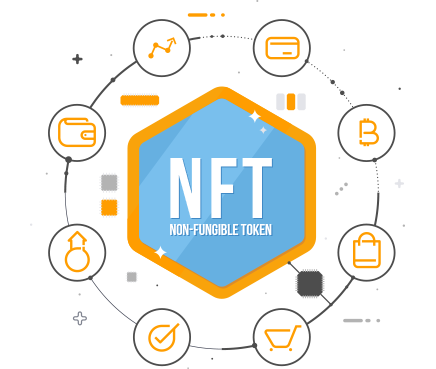NFT
NFTs have revolutionized the concept of authenticity and rarity in the digital industry by creating new markets.
NFTs are digital certificates, based on blockchain technology, unique and non-interchangeable. Blockchain ledgers ensure that the NFT remains unchanged over time. Special smart contracts identify its unique characteristics.
The main features of NFTs
Completed Projects
Streaming concerts and NFT
Find out more
Download our
company presentation

Let’s deepen the topic
NFTs are irreplaceable tokens that represent ownership of an asset, such as a work of art, photographs, real estate, and even businesses. The art world is one of the first to arrive at NFTs, let’s try to better understand what they are, borrowing the words of Dannie Chu, CEO of MakersPlace – NFT trading platform:
“There are hundreds of thousands of prints and reproductions of the Mona Lisa, but since they are not the originals created by Leonardo they are worth much less. The same principle applies to NFTs: you can copy and paste an image or video but the original, digitally signed by the artist, is what has value.”
So we can say that Non Fungible Tokens are unique certificates that represent a specific asset, making it digitally unique and not cloneable. Any copies can be recognized as such, but will never have the value of “original”. NFTs base their characteristics on the basic concepts of the blockchain, thus ensuring that they remain unchanged over time; special smart contracts identify its unique and not attackable characteristics such as, for example, the property, the value or the creation or purchase dates.

What does tokenization mean?
Tokenizing means transforming a physical asset into an unrepeatable intangible entity. But how?
Digitizing the asset, fragmenting it into different “virtual parts” called tokens, and registering the tokens in the blockchain. In this way, each token uniquely represents a specific part of the asset and cannot be copied or confused with others. Since the registration on the blockchain certifies its uniqueness, ownership and impossibility of being manipulated, each token at this point can be managed by special Smart Contracts for various purposes: sale, storage, etc. In addition to non-fungible tokens, there are many other types of tokens with different peculiarities and functions.




